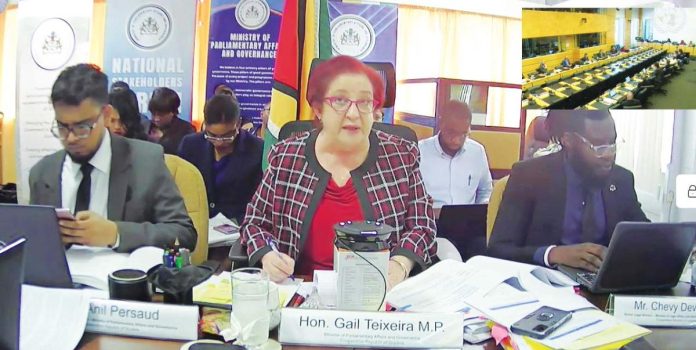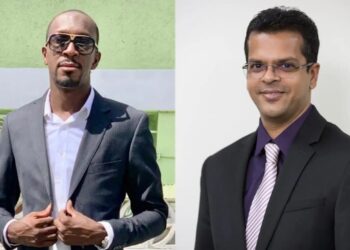In a recent series of hearings, the UN Human Rights Committee has shed light on what many Guyanese already suspected: a concerning pattern of human rights abuses, corruption, and poor governance under the PPP administration.
This according to the political opposition A Partnership for National Unity, Alliance for Change (APNU+AFC), which has since asserted that despite efforts by Minister Gail Teixeira to deflect, evade, and distort, the hearings have exposed significant shortcomings in the government’s approach to rule of law, transparency, inclusivity, accountability, and human rights.
Among the revelations, the government’s high levels of corruption and reluctance to investigate allegations against top officials have come under scrutiny. The hearings have laid bare the authoritarian tendencies of the PPP regime, dispelling any illusions of democratic governance.
Minister Teixeira’s performance during the hearings has highlighted the government’s discomfort with accountability, particularly evident in its dismantling of democratic forums such as Parliamentary Sectoral Committees. The PPP’s refusal to engage in meaningful debate and its manipulation of legislative bodies like the Public Accounts Committee have further eroded democratic norms.
Furthermore, accusations of misinformation by Minister Teixeira regarding appointments to constitutional bodies underscore a broader pattern of governance failures. Despite opposition cooperation, key appointments have been stalled, revealing the government’s reluctance to share power and ensure representation across institutions.
The UN committee has also delved into major instances of PPP corruption, including the Jagdeo and Su-gate scandals, discriminatory resource allocation, and politicization of state institutions. Additionally, the ineffectiveness of the Ministry of Governance in addressing these issues has been exposed, with Minister Teixeira’s complicity evident in her silence on government abuses and her role in undermining parliamentary procedures.
Regarding the Jagdeo and Su-gate controversies, calls for impartial investigations have been met with inaction, highlighting the government’s aversion to accountability. Despite public outcry, second Vice President Bharrat Jagdeo continues to wield influence, contributing to economic mismanagement and jeopardizing the well-being of Guyanese citizens.
The opposition has pledged to continue exposing PPP abuses and advocating for good governance principles rooted in equity, transparency, and accountability. As Guyana navigates its development path, the emphasis must be on people-centered policies that prioritize the needs of all citizens.
Ultimately, the UN hearings serve as a stark reminder of the challenges facing Guyana’s democratic institutions and the imperative of holding those in power accountable for their actions.













